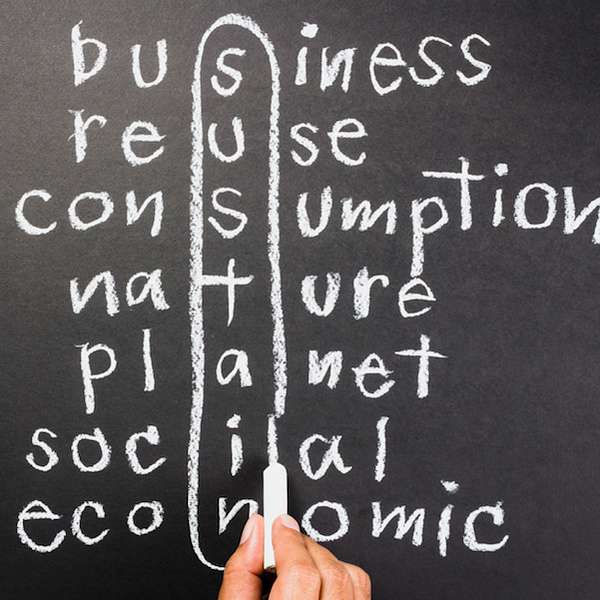
Your Mental Wellness Podcast for Your Voice and Sanity
Your Mental Wellness Podcast for Your Voice and Sanity
Sustainability 101: What's In It for Me?
Today I want to do a very surface scratch on the idea of sustainability, which a lot of times has been used with regards to describing activities or ways how enterprises or procedures are set up, that are able to then conserve or preserve the resources in this world, in the longer term.
And we often do not even give a second thought to well food or clothing medicine have come from. Yet if we are taking a more sustainability oriented lens, we should just remember how our parents, grandparents, or great grandparents, used plants, for example, to eat to cure diseases, and to create clothing.
And as we return to the very roots as to the plants that we have close to us, around us, we may find that these capacities that we may have set aside as we learn to find production of clothing, food medicine, elsewhere, cheaper than where we are, that indeed, looking at these things in our neighborhood, can really help to sustain us in a different way. A Western mindset has moved us away from that connection with ourselves in the present moment, as well as with the knowledge from our ancestors.
However, find out how you can make the difference only you can make.
You'r listening to YOUR Mental Wellness podcast for YOUR voice and sanity.
Thank you for joining us this week on your mental wellness podcast for your voice and sanity. Make sure to check out our show notes, visit our website, www dot tools for vitality.com where you can subscribe to the show. We would appreciate it if you would tell a friend about the podcast
What are your questions about your mental wellness, tools for vitality, or any other topic that comes up for you?
Email me: toolsforvitality@pm.me .
Tools for Vitality: Therapy, Coaching, Optimizing Nutrition and Movement for Mental Wellness
Hi. There today I want to do a very surface scratch on ID idea of sustainability, which a lot of times has been used with regards to describing activities or ways how enterprises or procedures are set up, that are able to then conserve or preserve the resources in this world, in the longer term. And we often do not even give a second thought to well food or clothing medicine have come from. Yet if we are taking a more sustainability oriented lens, we should just remember how our parents, grandparents, or great grandparents, used plants, for example, to eat to cure diseases, and to create clothing. And as we return to the very roots as to the plants that we have close to us, around us, we may find that these capacities that we may have set aside as we learn to find production of clothing, food medicine, elsewhere, cheaper than where we are, that indeed, looking at these things in our neighborhood, can really help to sustain us in a different way. And the Western mindset that we have over here, has really kind of moved us away from that connection with ourselves in the present moment, as well as with the knowledge from our ancestors. Growing up on a farm again, even that changed so significantly from my early childhood to when I left for college in that even agriculture has been such a rapidly evolving field. So if we were to go back to the idea of using what we find in terms of plants and their healing capacities, their nutrient capacities, and the other capacities that they may be used for, for example, providing alternative energy. I just want to challenge us today to look as close to your backyard or the little strip of vegetation around where you live, to look for and look up one plant from that stretch of vegetation. How was it used for alternative methods, apart from what you have it for? Let's assume you have dandelions for decoration. Look up what dandelions could be used for food wise, medicine wise. And with that focus as to what the resources are in our immediate environment. We get to them become the best stewards of that. And the ones that help really preserve the riches of the plants and have the system that has been so fantastically designed that we don't want to disrupt that we don't we want to have as we want to see as an as an ally and not as a phone. And with that challenge, even in our very, maybe limited lives, we can be the best to add to what we have. And with that good stewardship, which is one capacity of mental wellness. Leave a good legacy for those generations to come. Enjoy